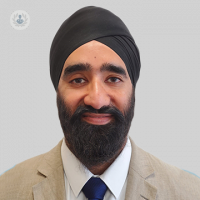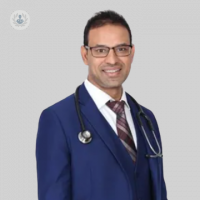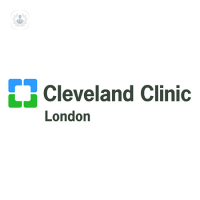What is a health check-up (health screening)?
A public (NHS) health assessment is a free check-up of a patient’s overall health. It is recommended to have one every five years if a person is aged between 40 and 74 and without a pre-existing condition. A health assessment is a preventative measure to help find health problems before they start. They can also tell whether a person is at risk of developing certain health problems, which include:
- Hypertension
- Heart disease
- Diabetes
- Kidney disease
- Stroke
- Dementia (in patients over the age of 65)
The different types of examinations and screenings depend on the patient’s age, health, family history and lifestyle choices such as food, activity levels and whether they smoke.

What is the right health assessment for me?
When having a health check-up with a private doctor, the following will be taken into consideration beforehand:
- Age – whether in the following groups 18-39, 40-64 or 65+
- Gender
- If there are any issues that the patient wants to discuss
- Family history – cancer, bowel disease, strokes, heart attacks, diabetes
- Fitness levels
What are the benefits of a health check-up?
The benefits of a regular check-up include:
- Reduces the risk of becoming sick
- Detection of potentially life-threatening diseases early on
- Increase the chance of treatment and cure of health conditions
- Decrease the risk of complications by monitoring ones that exist
- Increases lifespan
- Reduces overall healthcare costs over time
What happens during a public health check-up?
A public health check-up takes about 20-30 minutes. A health professional will ask simple questions about the patient’s lifestyle and family history. They will measure the patient’s height and weight, take their blood pressure and do a blood test. From this assessment, they will be able to give them an idea of their chances of developing heart disease, stroke, kidney disease and diabetes. The nurse will then advise the patient on how to lower their risk, discussing diet, exercise, medications and stopping smoking.
Where can I have a public health check-up?
Organising a public health check-up depends on where the patient lives. Most commonly, health assessments are held at a local GP surgery or pharmacy. It could happen in other places in the area such as a shopping centre, library or leisure centre. Some public health checks occur in mobile units for people who pass by and in the workplace.
How can I have a private health check?
If a person has private medical insurance schemes, they may find that their policy covers health checks through their place of work or provides some discount for health checks. For medical investigations, the patient requires a GP referral, although with some health assessments, a person may be able to self-refer.
10-04-2013 06-27-2023Health check up (health screening)
Dr Hana Patel - GP (general practitioner)
Created on: 10-04-2013
Updated on: 06-27-2023
Edited by: Conor Dunworth
What is a health check-up (health screening)?
A public (NHS) health assessment is a free check-up of a patient’s overall health. It is recommended to have one every five years if a person is aged between 40 and 74 and without a pre-existing condition. A health assessment is a preventative measure to help find health problems before they start. They can also tell whether a person is at risk of developing certain health problems, which include:
- Hypertension
- Heart disease
- Diabetes
- Kidney disease
- Stroke
- Dementia (in patients over the age of 65)
The different types of examinations and screenings depend on the patient’s age, health, family history and lifestyle choices such as food, activity levels and whether they smoke.

What is the right health assessment for me?
When having a health check-up with a private doctor, the following will be taken into consideration beforehand:
- Age – whether in the following groups 18-39, 40-64 or 65+
- Gender
- If there are any issues that the patient wants to discuss
- Family history – cancer, bowel disease, strokes, heart attacks, diabetes
- Fitness levels
What are the benefits of a health check-up?
The benefits of a regular check-up include:
- Reduces the risk of becoming sick
- Detection of potentially life-threatening diseases early on
- Increase the chance of treatment and cure of health conditions
- Decrease the risk of complications by monitoring ones that exist
- Increases lifespan
- Reduces overall healthcare costs over time
What happens during a public health check-up?
A public health check-up takes about 20-30 minutes. A health professional will ask simple questions about the patient’s lifestyle and family history. They will measure the patient’s height and weight, take their blood pressure and do a blood test. From this assessment, they will be able to give them an idea of their chances of developing heart disease, stroke, kidney disease and diabetes. The nurse will then advise the patient on how to lower their risk, discussing diet, exercise, medications and stopping smoking.
Where can I have a public health check-up?
Organising a public health check-up depends on where the patient lives. Most commonly, health assessments are held at a local GP surgery or pharmacy. It could happen in other places in the area such as a shopping centre, library or leisure centre. Some public health checks occur in mobile units for people who pass by and in the workplace.
How can I have a private health check?
If a person has private medical insurance schemes, they may find that their policy covers health checks through their place of work or provides some discount for health checks. For medical investigations, the patient requires a GP referral, although with some health assessments, a person may be able to self-refer.


The impact of digital health
By Dr Teresa Castiello
2025-01-14
Digital health focuses on the application of digital technologies to all aspects of healthcare, enabling accessible, quality, and equitable patient-centred care for anyone who needs it. Here, Dr Teresa Castiello, renowned consultant cardiologist based in London, provides an expert insight into digital health and its impact on the future of healthcare. See more
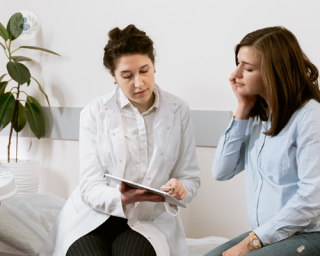

Why are health checks and preventive medicine important?
By Dr Lowri Bailey
2025-01-14
Maintaining optimal health and preventing illness is a priority for many, and health checks combined with preventive medicine are essential in achieving this goal. These practices not only aid in the early detection of potential health issues but also empower individuals to take proactive steps to maintain their wellbeing. See more


Navigating your child's health: When to consider antibiotics
By Dr Edyta Newman
2025-01-13
As a parent, it’s natural to worry when your child falls ill. Understanding when antibiotics are necessary can help you make informed decisions about their health care. In her latest online article, Dr Edyta Newman gives us a guide to help you navigate when antibiotics are appropriate for your child. See more
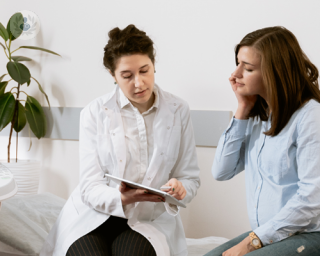

The lifesaving power of health screening: A general practitioner’s perspective
By Dr Lucy Dormer
2025-01-12
Health screening is a vital tool for detecting potential health problems before they become more serious. From a general practitioner's perspective, regular screenings can significantly increase the chances of early diagnosis, effective treatment, and even prevention of life-threatening conditions such as cancer, heart disease and diabetes. Here to tell us all about this important topic is a leading GP. See more
Experts in Health check up (health screening)
-
Dr Margarita Burmester
PaediatricsExpert in:
- Health check up (health screening)
- Infant colic
- Faltering growth
- Constipation
- Children’s primary care
- Newborn physical examination
-
Dr Victoria Owen
GP (general practitioner)Expert in:
- Health check up (health screening)
- Hormone replacement therapy (HRT)
- Coronavirus
- Psychiatric Expertise
- Paediatrics
- Vaccinations
-
Dr Amandeep Singh Grewal
GP (general practitioner)Expert in:
- Men's health check
- Allergy
- Acne
- Health check up (health screening)
- Hair loss
- Cosmetic dermatology
-
Dr Usha Sharma
GP (general practitioner)Expert in:
- Menopause
- Women's health
- Smear test
- Paediatrics
- Health check up (health screening)
- Contraceptive methods
-
Dr Mohamed Khan
GP (general practitioner)Expert in:
- Preventive medicine
- Chronic diseases
- Health check up (health screening)
- Men's health check
- Well-woman screening
- Headache
- See all

LSDC Healthcare
LSDC Healthcare
23 Widegate St, London E1 7HP, United Kingdom
No existe teléfono en el centro.
By using the telephone number provided by TOP DOCTORS, you automatically agree to let us use your phone number for statistical and commercial purposes. For further information, read our Privacy Policy
Top Doctors

Pixie and Sera
Pixie and Sera
5 Devonshire Pl, London W1G 6HL
No existe teléfono en el centro.
By using the telephone number provided by TOP DOCTORS, you automatically agree to let us use your phone number for statistical and commercial purposes. For further information, read our Privacy Policy
Top Doctors

Cleveland Clinic Portland Place Outpatient Centre
Cleveland Clinic Portland Place Outpatient Centre
24 Portland Place, W1B 1LU
No existe teléfono en el centro.
By using the telephone number provided by TOP DOCTORS, you automatically agree to let us use your phone number for statistical and commercial purposes. For further information, read our Privacy Policy
Top Doctors
-
LSDC Healthcare
23 Widegate St, London E1 7HP, United Kingdom, Central LondonExpert in:
- Abdominal ultrasound
- Achalasia
- Digestive
- Inflammatory bowel disease
- Gastroenterology
- Acid reflux
-
Pixie and Sera
5 Devonshire Pl, London W1G 6HL, W1G Marylebone LondonExpert in:
- Full Body Check
- Women’s health
- Menopause
- Nutrition and Dietetics
- Health check up
- Sexual health
-
Cleveland Clinic Portland Place Outpatient Centre
24 Portland Place, W1B 1LU, Central LondonExpert in:
- Diagnosis of Cancer
- Diagnostics
- Women’s health
- Sports Medicine
- General practice
- Health check up
- See all
- Most viewed diseases, medical tests, and treatments
- Narcolepsy
- Snoring
- Polysomnography (sleep study)
- Immunotherapy
- Alzheimer's disease
- Cluster headaches
- Tension headache
- Chronic headache
- Child nutrition
- Migraine



